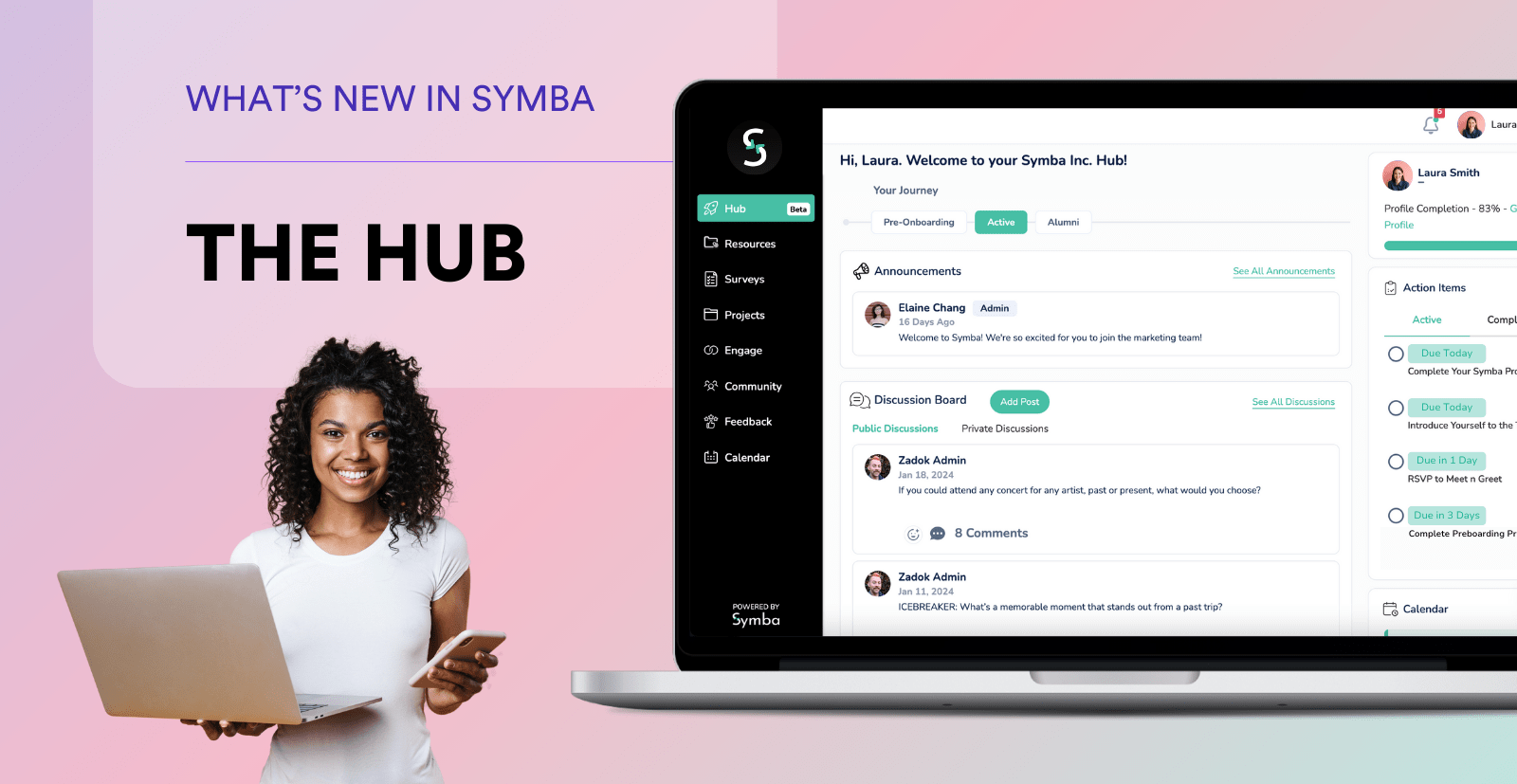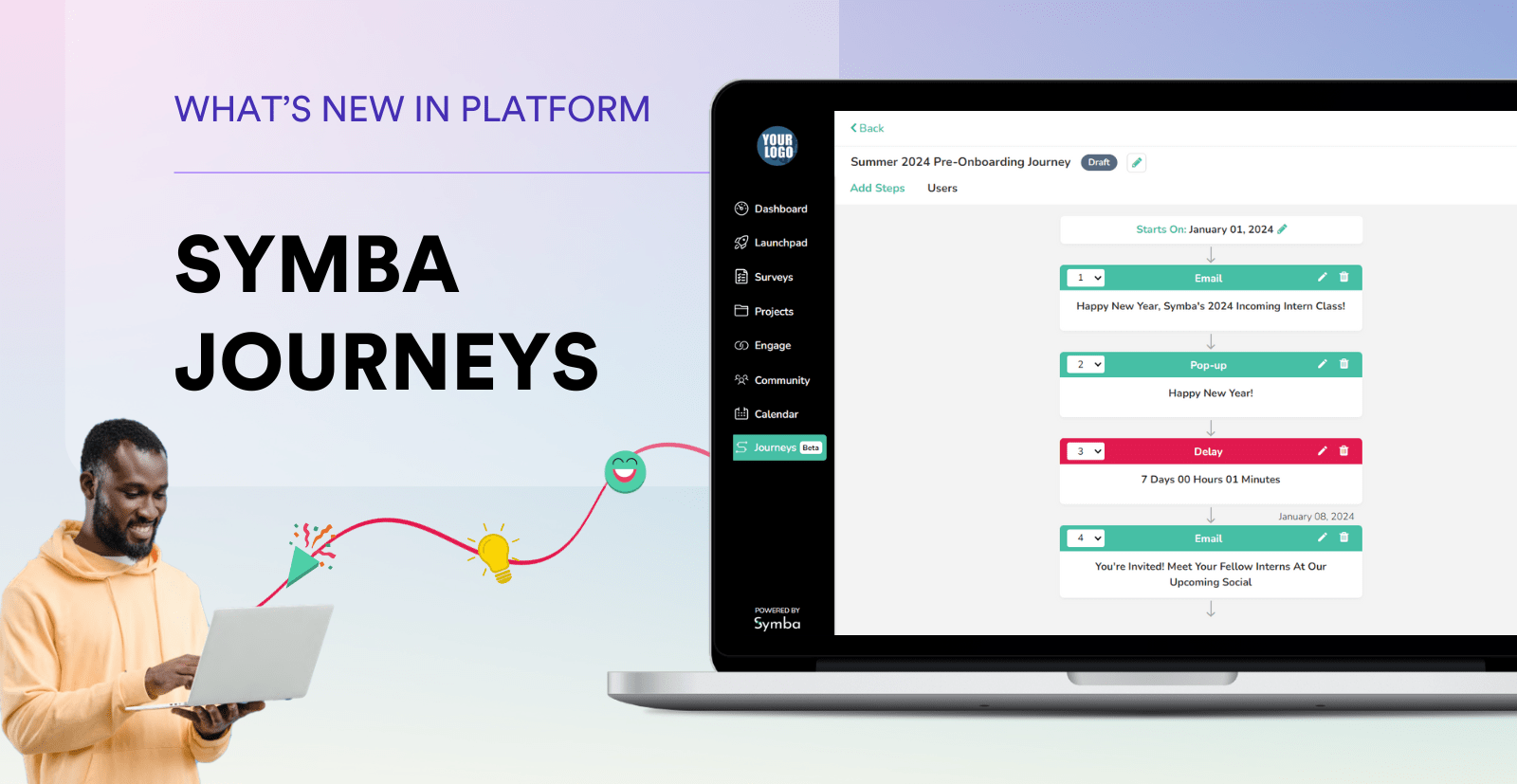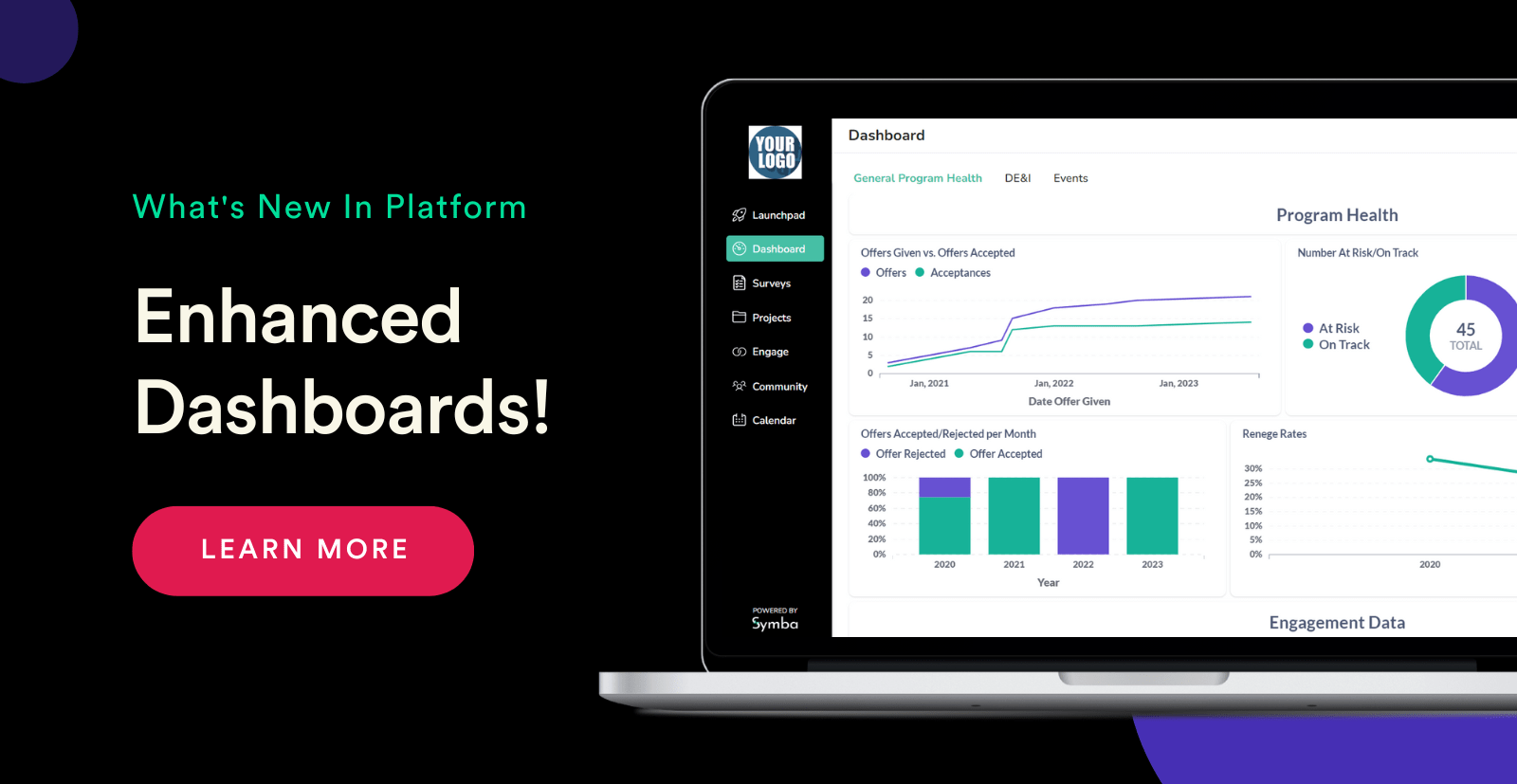Internships are fundamental to career success, but traditional programs face a lack of accessibility and diversity. Symba is here to change that.
My name is Ahva Sadeghi, and I am the CEO of Symba. I am a social entrepreneur committed to lifelong human rights work to generate meaningful social change.
While in college, I did six different internships with the State Department, Peace Corps, and various nonprofits. With each cohort, I noticed a lack of diversity and an inequality in socioeconomic representation.
I found this troubling because internships are fundamental to career success:
1. Research from the Chronicle of Higher Education and the American Public Media’s Marketplace survey shows that internships are the single most important criteria for graduates’ resumes.
2. Students with internships are more likely to land a job right after college graduation compared to students without internships, according to the National Association of Colleges and Employers.
3. Students who have completed internships can earn college credits, test out their career plans, and get paid more when they enter the workforce.
However, many of these internships are unpaid or located in cities with high costs of living (apartment rentals, groceries, commuting costs). How can students access these internships if they can’t afford them? Symba was founded to level the playing field for all students, regardless of socioeconomic status.
Our mission at Symba is to make internships more accessible to students around the world by helping employers manage both remote and in-person internships and scale their programs.
Symba’s comprehensive internship management platform helps organizations handle the logistics of an internship program from onboarding and project assignment to communication and feedback. Our proprietary software saves organizations the time, costs, and hassles that come along with traditional internship programs. Symba helps organizations identify the best talent from around the world and build diverse, energetic, and dedicated workforce pipelines.
With Symba, students can build professional experiences for their resumes and avoid many of the costs associated with internships. No matter their financial means, students will be able to access the best internship programs around the world.
This mutually beneficial and symbiotic relationship for interns and organizations inspired our startup’s name, Symba!
As a social entrepreneur and John Lewis Fellow for Civil and Human Rights, I am fueled by my desire to create a world in which organizations are diverse in socioeconomic class, race and thought. If we want diversity in the workforce to be representative, we must address the creation of workforce pipelines.
Six months ago, Symba was just an idea. Now it has manifested into the beginnings of a social enterprise with a team of 5 women in tech. We are now ready to tell the world and invite you on our journey towards breaking barriers and creating fair access to work! Connect with us on LinkedIn, Facebook and Twitter to stay updated.





